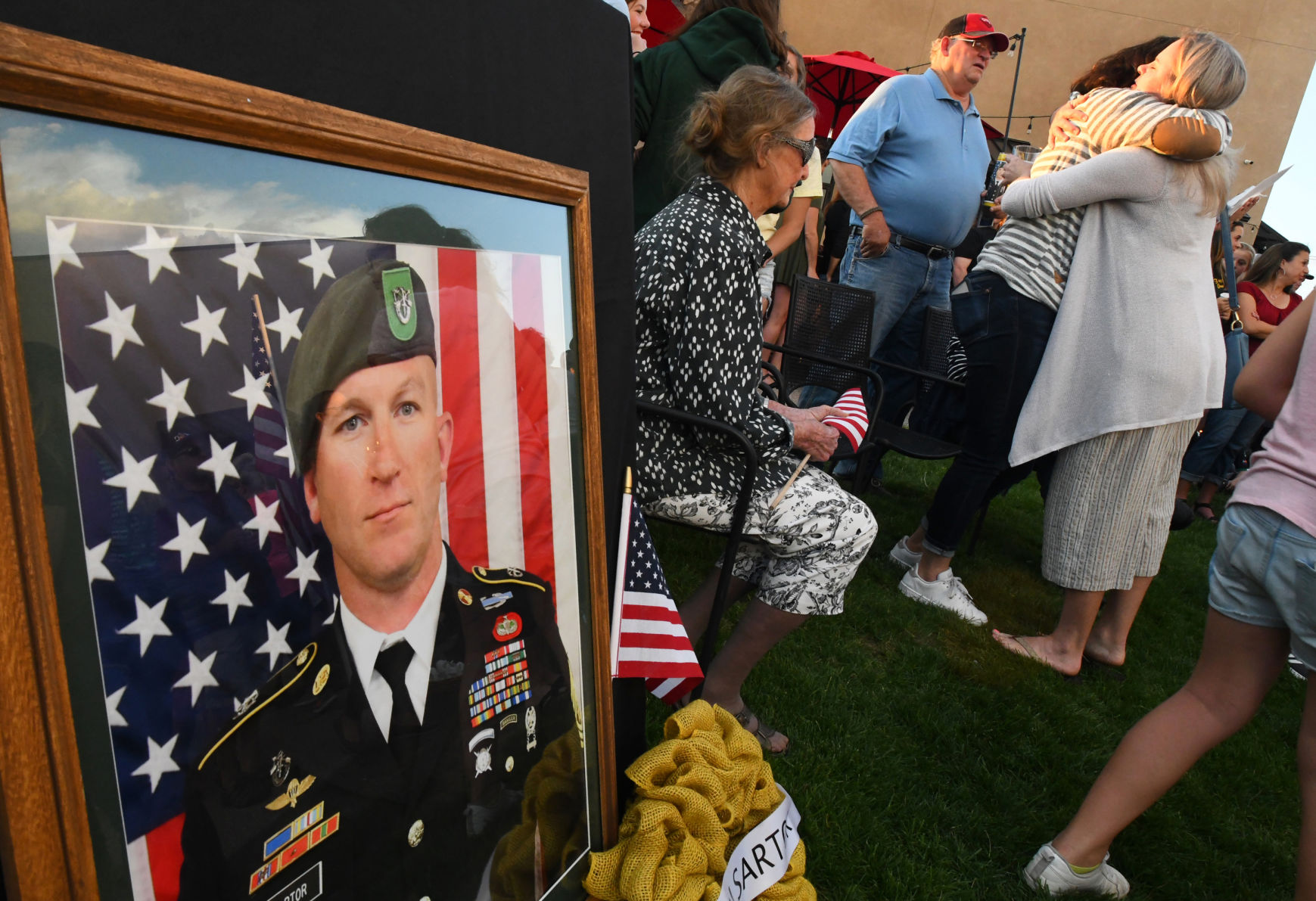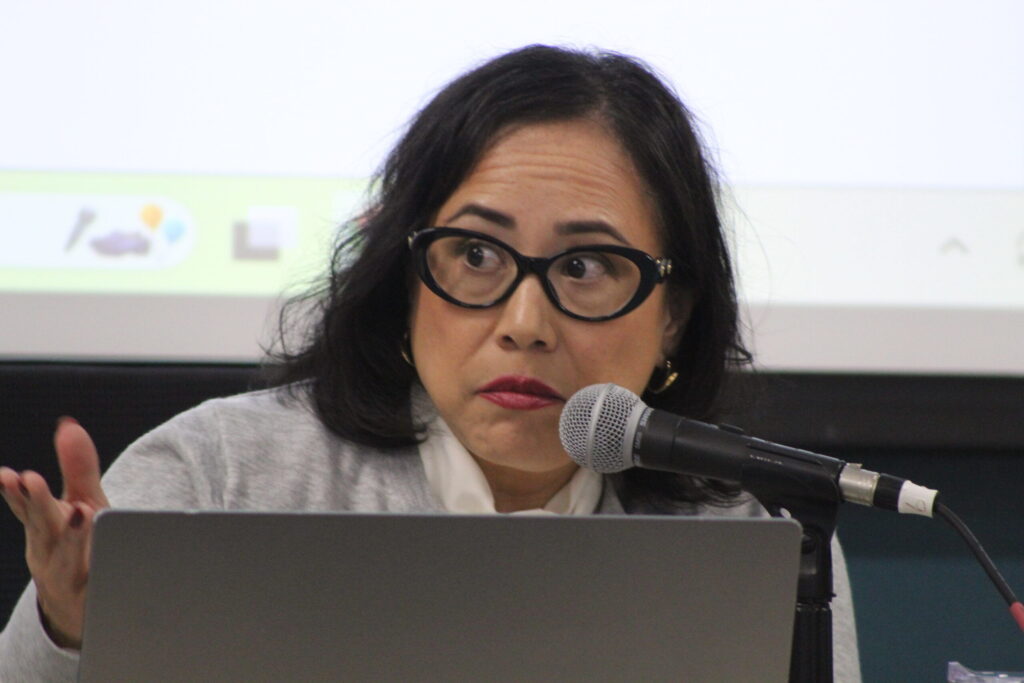ASPEN SECURITY FORUM | Amid Fort Carson bloodshed, Afghanistan seeks an end to war

ASPEN ? The Aspen Security forum spent much time pondering conflict with American rivals China and Russia, but little on the war that is still costing the lives of Colorado-based troops.
The fighting in Afghanistan that has left five Fort Carson soldiers dead this year comes as America seeks a peace deal to end 18 years of fighting there, with a self-imposed deadline of Sept. 1 to get a deal done.
Afghanistan’s ambassador to the United States and an expert in U.S. policy there say there are hopeful signs amid the heavy fighting that has left 12 Americans dead this year.
But finding a way to wrap up the war that followed the 9/11 attacks remains elusive.
“A peace deal will only be enduring and sustainable if it is owned by the Afghans,” said Roya Rahmani, the Afghan ambassador who admitted a wariness toward the negotiations that have taken place in Qatar between American negotiators and Taliban leaders.
What’s keeping generals up at night? Cyber threats
The top American negotiator, Zalmay Khalilzad, canceled his scheduled talk at the Aspen Forum, which wrapped up Saturday and drew America’s top national security experts and security thinkers from around the planet for four days of discussions centered on global rivalries and threats. No reason for Khalilzad’s absence was offered.
Through months of negotiations, though, Khalilzad has been shuttling to Qatar for seven rounds of talks, which have yet to bear fruit.
The Taliban, which ran Afghanistan from 1996 until the U.S. invasion in 2001, has grown its insurgency against the Afghan government and U.S. advisers this year. By rolling through provinces and keeping Kabul on edge with frequent bombings, the Taliban has sought to improve its negotiating position.
In the course of those attacks, Fort Carson has a paid a massive price, with the most casualties this year of any American base. Sgt. Maj. James G. Sartor, Master Sgt. Micheal B. Riley, Sgt. 1st Class Elliott J. Robbins, Sgt. 1st Class Will D. Lindsay and Spc. Joseph P. Collette, all from Fort Carson, were killed this year.
Since the 2001 invasion to topple the Taliban and rout terror groups including al-Qaida, the U.S. has suffered 2,436 deaths. An additional 1,000 troops from America’s North Atlantic Treat Organization allies have died in the fighting.
Now, America is seeking a deal that would lead to a cease-fire, the reintegration of Taliban fighters into Afghan society and an agreement that Afghanistan will not allow terrorist training camps. In exchange, America is offering to pull out some or all of its 16,000 remaining troops.
Retired Army Lt. Gen. Douglas Lute, who served as the Bush administration’s top strategist for the Afghanistan war, said the Taliban wants foreign forces out of the country, but also needs to keep fighting to avoid fracturing its unstable coalition of Afghan factions.
“Their jihad against foreign occupation is the glue that keeps the Taliban together,” he said.
So far, despite billions of dollars in military assistance, American air power, training from American advisers including troops from Fort Carson’s 10th Special Forces groups, and a series of America-led raids to target insurgent leaders, Lute said fighting in Afghanistan this year has yielded a “stalemate.”
And the dwindling U.S. presence in Afghanistan has left America without the might to enforce a peace deal through combat.
Lute said as a result, the U.S. “doesn’t have a lot of leverage” in peace talks.
But there is one factor that is offering hope: The warring sides of what is a civil war in Afghanistan appear to be weary of continued fighting. Afghanistan has been the scene of near-constant battle since the Soviet Union invaded in 1979.
“We, the Afghan nation, want peace more than anyone else,” Rahmani said.
Even as peace talks continue, Afghanistan is undergoing the upheaval of a presidential election. One of the biggest issues for voters who head to the polls there on Sept. 28 centers on the peace deal. And, Rahmani said, a stable government in Kabul will be required to implement any accord.
It is clear that the Afghan people want the fighting stopped, she said.
“A cease-fire is, of course, something we want, ” Rahmani said. “It is something we wanted 40 years ago.”
Another issue complicating a peace deal is the Taliban’s success in the narcotics business. While opium production declined in 2018, Pentagon reports show that it remained at near-record highs. And a bumper crop of poppies is expected this year, giving the Taliban opium worth billions on the illicit export market.
“The fingers of the narco-traffickers really extend to bedrooms in Europe and the United States,” Rahmani said.
The heroin trade allows the Taliban to buy weapons and pay its militants. And efforts to curtail the drug trade have been hampered by fighting, a report by the Pentagon’s Special Inspector General for Afghanistan Reconstruction shows.
In Washington, President Donald Trump has pushed for an American withdrawal from Afghanistan. With a Feb. 1 tweet saying “these wars must finally end,” Trump shocked his military advisers and the Kabul government with a call for a rapid pullout.
Rahmani said that Afghans, though, are now backing the president’s peace overtures.
“I personally believe that President Trump wants a deal, but a good deal,” she said.
Since 2001, Afghanistan has seen improvements in education, a budding democracy, women’s rights, industrial growth and freedoms that were forbidden under Taliban rule. Rahmani said she wants peace in her country but can’t stomach a return to the oppression of the past.
“A bad deal is one where we cannot preserve the gains of the past 18 years,” she said.
And as America negotiates with a stalwart enemy in the Taliban, Rahmani said all the blood shed by American troops, including those from Fort Carson, hasn’t been in vain.
A peace that leads to American withdrawal and a Taliban presence in the Kabul government isn’t a defeat, Rahmani said.
“It will not be a lost cause, but a victory on the shoulder of every man and woman who has served in Afghanistan,” she said.















